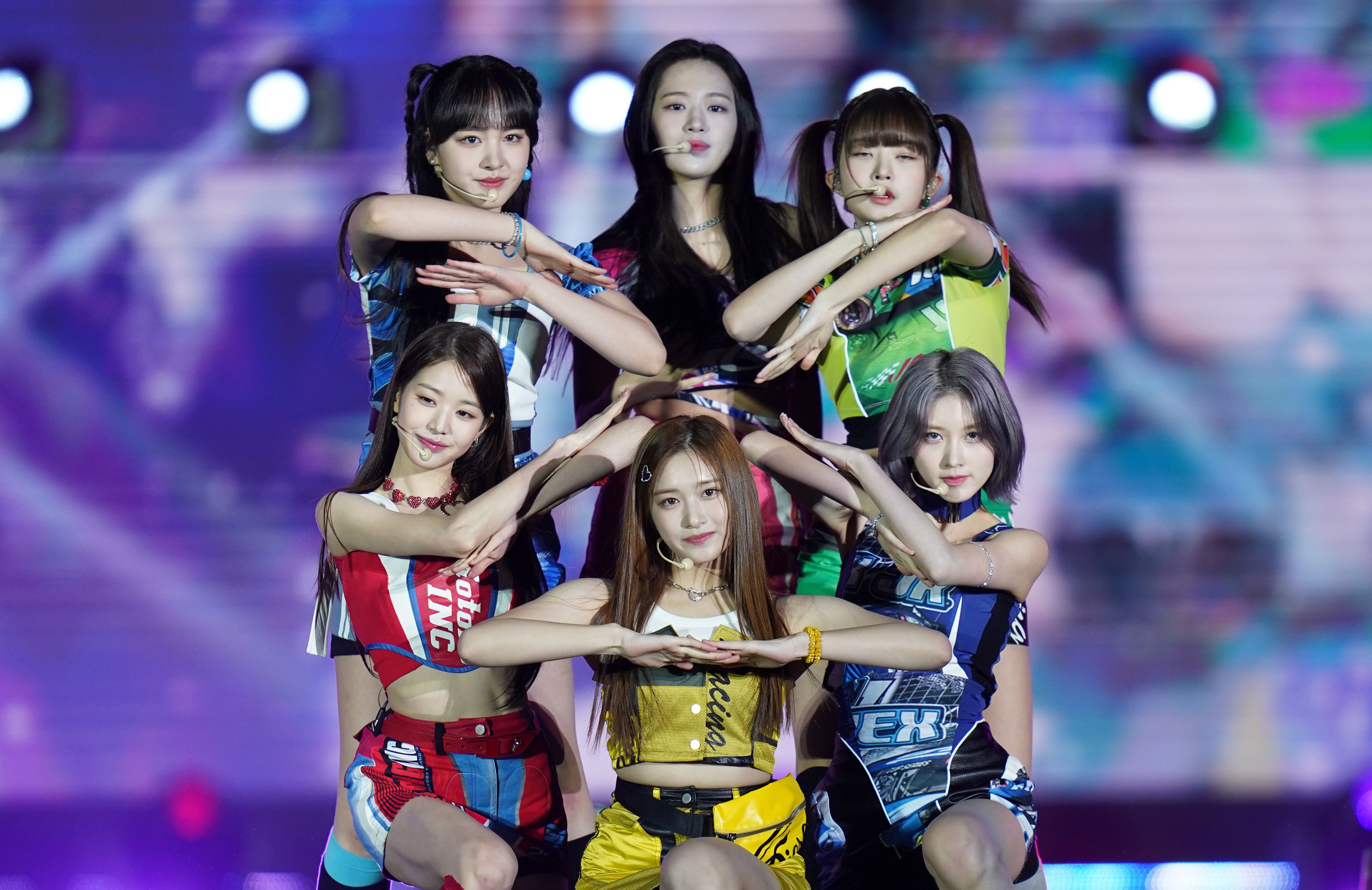Dive Into Kpop: Origins, Stars & Top Songs! - [Discover Now]
What makes K-pop a global phenomenon, captivating audiences worldwide with its infectious energy and meticulously crafted performances? The answer lies in a multifaceted blend of captivating cultural origins, sophisticated audiovisual content, a unique idol system, genre-bending music, and the embrace of transnational values, creating an unparalleled entertainment experience.
K-pop, a shortened form of "Korean popular music," has transcended its origins in South Korea to become a global cultural force. It's not just music; it's a comprehensive entertainment package that includes meticulously choreographed dance routines, visually stunning music videos, and a highly engaged fanbase. Its appeal is amplified by the industry's strategic use of social media, fan interaction, and the creation of aspirational personalities that resonate with a global audience.
Delving into the core of K-pop reveals a complex ecosystem. It is the story of South Korea's music industry, evolving from its roots to global recognition, is a testament to the power of meticulous planning, cultural exchange, and the unrelenting pursuit of innovation. From its humble beginnings, K-pop has been meticulously crafted to cater to a variety of tastes and cultures, making it a leading example of a cultural phenomenon that has captured the hearts and minds of millions.
The success of K-pop lies not only in its catchy tunes and stunning visuals but also in its adept adaptation to the digital age. The use of social media platforms to engage with fans, the creation of interactive content, and the availability of music and videos online have all contributed to the genre's global expansion and fan base. The industrys use of multiple languages, including English, Chinese, and Japanese, further expands the range of possible audiences for its music.
To truly understand K-pop, it's essential to examine the different aspects that make it a global force, and that begins with the origin of this culture and it's subsequent spread all over the globe.
Exploring the Cultural Tapestry of K-Pop
The origins of K-pop can be traced back to the early 1990s, when South Korea began to liberalize its music scene. Inspired by American and Japanese pop music, the industry set out to craft a unique musical identity that would stand out from the crowd. The foundation of this new identity was the boy and girl groups, that had an impeccable blend of music, dancing, and visual appeal. This early period saw the rise of groups like Seo Taiji and Boys, H.O.T., and S.E.S., who laid the groundwork for the modern K-pop industry. This period marked the beginning of an era where South Korean culture began spreading beyond its national borders, and the birth of the Korean Wave, or Hallyu, where the popularity of South Korean culture across the globe became a widespread phenomenon.
The growth of this new industry, the early acts made a vital contribution to the structure of K-pop. They pioneered the now iconic format of the idol group, incorporating a group of vocalists, dancers, and rappers who created a cohesive package. These early groups, trained rigorously by entertainment companies, became the prototype for the future generations of K-pop artists. With a heavy focus on production quality, choreography, and visual concepts, these groups were successful in getting the attention of the South Korean audience. This approach not only solidified the commercial viability of K-pop but also established a template for its growth into a worldwide phenomenon.
K-pop's cultural impact is a complex one, a tapestry of its cultural roots, which includes not only music, but also fashion, style, and lifestyle trends. This has been instrumental in exporting the values and aesthetics of South Korea and has led to a boom in the cultural industry of the nation. As K-pop became more and more popular, there was an increase in tourism to South Korea, more people began learning the Korean language, and there was a growth in global interest in Korean food, dramas, and movies.
K-pop has also had a tremendous impact on the entertainment and music industries. The focus on high-quality music videos, well-choreographed live performances, and the use of social media for engaging with fans has set a new standard for artists everywhere. K-pops focus on meticulous production, extensive fan engagement, and the creation of a strong brand identity has proven to be a useful blueprint for the music industry as a whole. Because of this, K-pop's impact is both cultural and economic, with the industry generating billions of dollars each year. From influencing fashion trends to reshaping music videos, K-pop is making its mark as one of the most influential cultural exports of the twenty-first century.
Unpacking the Elements of K-Pop
K-pop is not a single genre; it is a hybrid of styles, blending pop, R&B, hip-hop, electronic dance music, and even elements of rock and Latin music. This versatility allows the genre to appeal to a variety of audiences. The songs are generally catchy, well-produced, and tailored to be easily accessible. There is also a trend towards incorporating English lyrics, with the intention of increasing its popularity among international audiences. The fusion of music styles, the use of different languages, and the ability to innovate make K-pop a versatile genre that can constantly renew itself.
K-pop, as a visual art form, is known for its extravagant music videos. These are not simply visual representations of the songs. Rather, they are often elaborate productions with detailed settings, compelling narratives, and amazing visual effects. These videos often include intricate dance performances, fashionable and attractive visuals, and captivating storylines that keep viewers glued to their screens. From the vibrant colors to the fashionable outfits, and also the use of elaborate sets and visual effects, the music videos are made to provide a holistic sensory experience that enhances the musical experience.
The "idol system" is a defining feature of K-pop. Entertainment companies recruit young trainees, who then undergo intensive training for years in singing, dancing, and other performance-related skills. The training is often rigorous and the competition is fierce, with only a small percentage of trainees eventually debuting in a group. This system puts a lot of emphasis on the preparation and execution of an artist, ensuring a consistent level of quality across the board. It also encourages a specific work ethic and mindset that fosters a strong group dynamic and helps the artists to develop discipline and versatility.
Understanding the Global Reach
K-pop's success can be attributed to its adaptability. It is not limited to music; it integrates fashion, social media, and fan interaction. This approach has helped the genre to appeal to diverse audiences all over the world. By using multiple languages in their songs and interacting with fans in a variety of ways, K-pop groups have been able to break down language barriers and engage with global audiences in a more meaningful way.
The "transnational values" of K-pop, such as teamwork, dedication, and self-improvement, resonate with audiences around the globe. The emphasis on hard work, perseverance, and achieving personal goals helps the artists develop a strong and loyal fanbase. Furthermore, K-pop embraces cultural diversity, with groups often including members from different countries. This diversity reflects the global landscape and strengthens the genre's appeal to a variety of audiences.
The impact of K-pop has been felt worldwide. Groups have achieved international success, topping charts in numerous countries and earning accolades from prestigious award shows. With live performances, which include "The live that set a new Guinness World Record for the most viewers for a music concert live stream, K-pop has showcased the genre's global appeal. This has led to increased tourism, and an interest in Korean culture. The music, fashion, and cultural trends of K-pop have also influenced the entertainment industries around the world, proving that it's a global phenomenon.
K-pop's success is not just a reflection of its musical quality and visual appeal; it is also a result of the carefully crafted strategy of engaging with fans on social media. The use of platforms such as Twitter, Instagram, and YouTube to interact with fans has been instrumental in building communities and promoting the music. Fan communities, or fandoms, are often highly active and contribute to the genres popularity by sharing their favorite content, organizing streaming parties, and participating in social media campaigns. This direct interaction between artists and their fans builds loyalty and further solidifies the bond between K-pop and its global audience.
K-pop's Future
The music industry is constantly changing, and K-pop is not an exception. In the coming years, K-pop is expected to continue its growth by adapting to new technologies and trends. This includes more use of virtual reality and immersive experiences to provide fans with fresh and exciting ways to connect with their favorite artists. There are already indications of future trends, such as using artificial intelligence to produce music, customized fan experiences, and the exploration of new hybrid genres.
As K-pop evolves, there is a need to consider the challenges and opportunities that lie ahead. The industry will have to address issues such as artist mental health, the impact of the idol system, and the sustainability of the business model. The growing impact of K-pop globally will force the industry to consider its global responsibilities and ensure that its actions align with ethical practices. To continue innovating and influencing, the industry must strike a balance between creative innovation, business strategy, and social responsibility.
K-pop
In conclusion, the global success of K-pop is due to its ability to merge music, performance, and culture. Its cultural origins, unique idol system, hybrid genres, transnational values, and also its embrace of digital platforms have been instrumental in making it a global phenomenon. K-pop is still growing as the music industry develops, embracing new technologies and trends to ensure its continued success.
| K-Pop: A Quick Facts Guide | |
|---|---|
| Genre Blend | Pop, R&B, Hip-Hop, Electronic, Rock, Latin influences |
| Key Elements | Intricate choreography, visually stunning music videos, engaging storylines, fashion-forward visuals |
| Idol System | Rigorous training, competitive auditions, multi-talented performers (singing, dancing, rapping) |
| Fan Engagement | Active social media presence, fan interactions, organized fandoms |
| Transnational Values | Teamwork, dedication, self-improvement, cultural diversity |
| Global Impact | Chart-topping success, international awards, influence on fashion and entertainment |
| Industry Trends | Technological advancements, virtual reality experiences, AI integration, hybrid genres |
Find interesting facts about your favorite K-pop bands and stars, explore K-pop profiles, K-pop fun facts, and Korean celebrity profiles. Discover the latest updates and insights into the world of K-pop!
Welcome back to the top 100 most viewed #kpop songs of all time! We have been updating you on views for over 6 years now! This month we have a new entry from many new groups debuting. Here is a playlist of some of the most popular K-pop songs from 2021 and 2022. All rights reserved.



Detail Author:
- Name : Prof. Ambrose Kulas I
- Username : xschuster
- Email : white.saul@hill.com
- Birthdate : 2002-05-09
- Address : 62225 Reilly Place West Jack, WY 34816
- Phone : 801.417.5152
- Company : Mayer-Lebsack
- Job : Orthotist OR Prosthetist
- Bio : Aut saepe ratione voluptatibus non. Ut ipsa voluptatem pariatur sit. Quasi tenetur dicta officia reiciendis quaerat doloremque. Voluptatem et labore animi a natus. Tempore molestiae illum nihil.
Socials
linkedin:
- url : https://linkedin.com/in/barbara2920
- username : barbara2920
- bio : Ducimus et corporis aut.
- followers : 6949
- following : 608
instagram:
- url : https://instagram.com/bhoppe
- username : bhoppe
- bio : Tenetur alias atque id quis rerum. Commodi vero est temporibus dicta aut temporibus.
- followers : 6525
- following : 2502